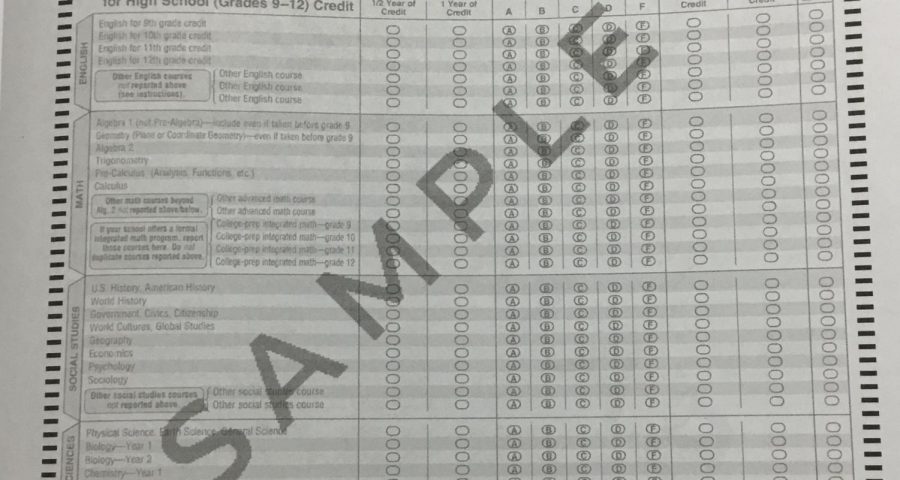Is testing necessary?
A sample of a bubble testing sheet.
Whether you’re currently in school or have already graduated, you know what a pain testing can be. Many high school students feel the same way, testing brings a significant amount of stress to students, and starting to test students at an early age is showing that these stress levels continue to increase. According to WeAreTeachers.com, test anxiety is found in about ten million students in North America. Test anxiety is extreme distress occuring due to a test and interfering with the ability of taking the test. Test anxiety peaks in grades two through four, and follows that child through the remaining of their academic years. Some schools are decreasing the time of recess, art, and sometimes even lunch to have more prep time for tests. Not only does test anxiety cause students’ stress levels to increase it also causes students to score half a letter grade below their peers. The result of a bad score can be the start of poor morale, low comprehension, low confidence, and rejection of school work.
When in high school, there is more to deal with compared to when in elementary school. In high school some students have jobs, extracurricular activities, different home living situations, and other responsibilities to deal with. Testing causes major stress when having other things to worry about. Ailyn Adame is a Senior at SCHS. “A score on a test doesn’t define a student’s knowledge,” said Ailyn. With this statement I agree with, many other factors come into play when it comes to the way a student picks up and absorbs information. Some students’ first language is not english, therefore a test only given in english sets them at a huge disadvantage. Along with some students not being able to learn the information at the same time as other students. Not all students are at the same academic level, this doesn’t necessarily mean the student is less intelligent, it could mean the information was not taught in a way for the student to understand or other reasons. Ailyn believes “There is no need to put a number or score on (a test) it.” A bad result of a test score can make students feel less encouraged to put forth more effort in school, decrease in self worth, and simply just bring down the student.
There are different assessments that gather different data. Formative assessments help teachers adjust their instructions to meet their students’ needs. Benchmark assessments are useful to help gather information about individual student needs and the learning gaps. Summative assessments are used to gather data at the end of the year to find a trend for a group of students. According to Dr. Dave Gibbons, Director of Curriculum at Schuyler Community Schools, these assessments benefit students by helping the teachers and the school gather information to improve the way a subject is taught and to measure the student growth throughout the school year. These test scores are also used against the schools and students. For example, “the State Department of Education uses the ACT to judge the effectiveness of schools,” explained Dr. Gibbons.
There are positives and negatives to testing. Testing is a different experience for each student, some students struggle whereas others don’t struggle with testing. Testing should not deter students from their education.

As a Junior, Briana Martinez is a new Staff Reporter for Warrior News. Her main interests are Snapchat, watching movies, and spending time with her family.








